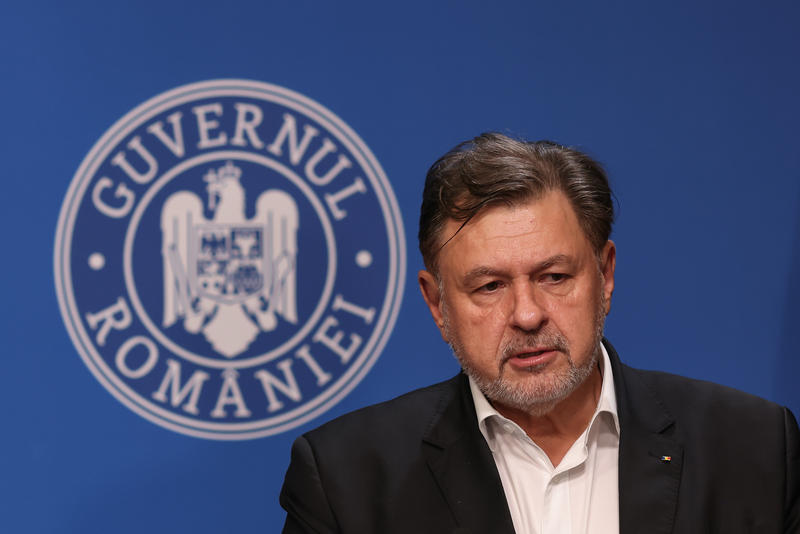Introduction
The increasing volume of sales passing over the Internet, as well as the mounting number of cross-border transactions in the European Union has caused the European Commission (hereinafter the “Commission”) to adopt a new amended regulation, i.e. Regulation no. 330/2010 dated April 20, 2010, in force since June 1, 2010, regarding block exemptions of agreements concluded between suppliers and distributors for the sale of products and services (hereinafter the “New Regulation”). This New Regulation has replaced former law in the field, i.e. Regulation no. 2790/1999, expiring on May 31, 2010, which has been in force for the last decade.
“Vertical” agreements regarding supply and distribution agreements entered into between companies operating at different levels of the production and distribution chain as, for instance, agreements concluded between suppliers and wholesalers or retailers, are increasingly used in Internet sales, as well as in cross-border transactions among Member States of the EU. Since the number of such “vertical” agreements in the economy is extremely high, the amendment of the applicable regulations in the field is of some consequence to economic entities active on the EU market. It is the Commission’s view that a clear and predictable implementation of the competition rules to supply and distribution agreements is essential for the competitiveness of the EU economy and for the general welfare of consumers. Distributors should be free to satisfy consumer demand, whether in traditional “brick and mortar” stores or in online shops. Moreover, the New Regulation should ensure that consumers can buy goods and services at the best available prices wherever they are located in the EU with greater choice and price competition. This article focuses on the main amendments and improvements of the New Regulation.
Brief Legislative Overview
The Treaty on the Functioning of the EU (the “Treaty”) sets forth in Article 101 (1) that any agreements between undertakings, and any decisions of associations of undertakings and any concerted practices which may affect trade between member states and which have as object the prevention, restraint or distortion of competition within the EU’s internal market are incompatible with such internal market and, thus, forbidden. Vertical agreements fall under this interdiction.
Further along, the Treaty states that its provisions may be inapplicable for certain monopolist agreements (See, Article 101 (3)) if they contribute to the improvement of the production or distribution of products, or to the promotion of technical or economical progress, but ensuring to consumers an equitable part of the benefits obtained, if the following conditions are cumulatively fulfilled: (i) they do not impose to the undertakings in question restrictions which are not indispensable for the achievement of the aforementioned objectives; and (ii) they do not provide to undertakings the possibility to eliminate competition with regard to a significant part of the products in question.
Due to the fact that vertical agreements are considered to be less restrictive on competition than horizontal agreements and often have benefits and produce efficiencies which outweigh the negative effects on competition, the Commission has adopted over time various block exemption regulations in regard to vertical agreements, which basically say that under a certain market share thresholds and provided there are no hardcore restrictions on competition, vertical agreements are exempted from the interdiction provided by Article 101 (1) of the Treaty and are compatible with the competitive environment. The former Regulation no. 2790/1999 that has been replaced by the New Regulation provided for such block exemption of vertical agreements. The regulations are accompanied by guidelines issued by the Commission for their interpretation and application and for the analysis of vertical agreements in general.
The aforementioned provisions included in the Treaty are directly applicable in the national law of the EU member states, including Romania. The same goes for the regulations adopted at the EU level.
The New Regulation states that, as regards the vertical agreements which could be exempted in accordance with the provisions of Regulation 2790/1999, but which cannot qualify for exemption according to the New Regulation, there is a transitory period of one year, until May 31, 2011. Therefore, undertakings have a period of one year to remedy the structure of the vertical agreements in which they are involved in order for them to be in compliance with the provisions of the New Regulation.
The New Regulation
General Aspects
Basically, the New Regulation introduces a more restrictive market share threshold for the application of its provisions, and it also clarifies the manner in which it shall apply to restrictions on Internet sales. In addition, the New Regulation has brought more clarity to the rules covering selective distribution networks.
As regards market share, the principle remains similar to the provisions of the old regulation, which is that undertakings are free to decide the manner in which their products will be distributed, provided that their agreements do not include price fixing clauses or other hardcore restrictions on competition. So, manufacturers remain free to decide how to distribute their products. But in order to benefit from the block exemption, they cannot have a market share in excess of 30%. The important amendment introduced by the New Regulation is that, from now on, it will not be just the market share of the supplier or, as the case may be, of the distributor, to be taken into consideration, but the market share of both the distributor and the supplier must not exceed 30% on the relevant markets.
The introduction of the market share criteria for both suppliers, as well as distributors, is meant to cover the situation where certain distributors may have a large market power, which may generate negative effects over competition. Therefore, this amendment is beneficial for distributors having less power on the market as, in the absence of such amendment, they could have been excluded from the distribution market. However, in practice, the revised market share threshold is likely to make it more difficult for undertakings to ascertain whether their agreements are subject to block exemption or not, since they will now have to assess both their own market share, as well as the market share of their trading partner.
The fact that the regulation sets a 30% market share threshold does not mean that the agreements concluded between companies with higher market shares are illegal. It only means that, in such cases an assessment must be made as to whether these agreements contain restrictive clauses and whether they would be justified. In addition, the New Regulation also addresses the issue of online sales. In that respect, the new rules clarify certain aspects applicable both to selective distribution, as well as to exclusive distribution systems, as detailed below.
Selective Distribution Systems
After long and controversial debates on this matter, the New Regulation brings various significant improvements regarding selective distribution agreements, as well as online sales. The Commission actually regards the Internet as a very important tool for sales, which are beneficial for consumers, as they could have access to lower prices and to certain products, regardless of their location on EU territory.
Within the selective distribution systems, only authorized distributors are allowed to use the Internet as a selling method. But once they have been authorized, they are free to sell through their websites, as they would be in a “brick and mortar” shop. The suppliers cannot limit the quantities of products sold through the Internet and they cannot charge higher prices for the products which will be sold online. However, in order to support the distributors’ efforts in its endeavor to increase online sales, the supplier may set a fixed incentive for the distributor. This could cover the distributor’s efforts with the graphic design of the website, maintaining permanent product stocks and keeping the website functional 24/7.
As mentioned above, limiting the percentage of sales performed through the Internet out of the total sales achieved by a distributor represents a hardcore restriction and thus it is not allowed. However, a distributor may be required to sell a certain quantity of products in its established shops in order to ensure their efficiency. The actual quantity to be sold in this manner depends on the market share for the respective product and the geographical area. In case such quantity is not reasonably determined, this could amount to a hardcore restriction and not benefit from the exemption.
A very significant amendment brought by the New Regulation refers to the possibility of the members of a selective distribution system to restrict sales with unauthorized distributors. Until now, the sales to unauthorized distributors could be restricted with no limitations. According to the New Regulation, such a restraint may be implemented only with regard to the territory reserved by the supplier for the selective distribution system. Consequently, the supplier must establish a certain territory in which he implements the selective distribution, and only afterwards could the supplier prohibit sales to unauthorized distributors from that specific territory. This means that, in case a supplier has established systems of selective distribution for certain EU member states, the authorized distributors from these states are allowed to sell, with no restriction, to unauthorized distributors from other states in which the supplier has not established a system of selective distribution.
Within selective distribution systems, suppliers may select their online distributors, as they select the ones performing the distribution through traditional networks, applying to them certain qualitative criteria. They may choose to sell only to those distributors that have one or more established shops, where clients may be able to actually see and test the products which they intend to acquire. Furthermore, distributors may be prohibited from using the online shops of certain third persons, such as those websites hosting more distributors, or the ones not complying with the supplier’s criteria and standards.
With regard to the criteria which may be imposed upon online distributors, the Commission has confirmed that the standards imposed upon online distributors may differ from the ones imposed on the distributors using traditional methods, due to the different nature of the two systems, as well as to the practical conditions in which sales are being achieved. However, the criteria imposed by suppliers to distributors must have the same objective and it must lead to comparable results.
Exclusive Distribution Systems
The new guidelines accompanying the New Regulation have clarified the concepts of “active” and “passive” sales. Active sales are when distributors approach individual consumers, while passive sales are in case of unsolicited requests from a customer to the distributor, usually in response to untargeted advertising. A distributor may restrict active sales, but not passive sales. Once an exclusive distributor has been authorized for a certain territory, that distributor should be able to sell to a consumer that has approached it from another EU country. There is a specific prohibition on companies terminating transactions once a foreign address has been mentioned on their consumers’ credit card details, or for the distributors’ websites to automatically relocate clients to the websites of distributors from the respective territories, or for such websites to shut down once they have been accessed by consumers from other territories.
Internet Publicity
The Commission elaborated a set of complex rules with regard to restrictions which may be imposed upon distributors in relation to publicity through the Internet. Until now, any such publicity was not in principle considered as a form of active sale, as sales on the Internet are regarded as part of passive sales.
These rules refer to Internet publicity having as their purpose the attraction of consumers from a certain territory or a certain group of consumers, which may be considered as a form of active sales efforts towards those consumers. According to the New Regulation, the publicity and the use of the Internet may be restricted if there is a chance that they may lead to active sales within the territories of other exclusive distributors or to certain groups of clients.
On the other hand, the Commission maintains its opinion that general publicity, including publicity through the Internet to which clients from other territories could have access in a reasonable manner, does not represent a method of active sale and, consequently, it cannot be subject to restrictions from suppliers.
Conclusions
After a long debate between the online retailers using the Internet and suppliers applying selective distribution, the Commission chose to regulate this aspect and provide expressly which restrictions on online sales are permitted and which are not. The most important online retailers are, of course, against these provisions as, in their view, no restrictions should be applied to the Internet. However, luxury brands producers hold the view that these restrictions are reasonable and justified and allow them to protect the quality and image of their brands, while preserving consumers’ interests because they can be offered quality products and appropriate before and after sales services. Only time will tell, as these provisions are enforced, who was right in this regard and how the common market and consumers interests are better safeguarded.
The article was published based upon approval of:
Rubin Meyer Doru & Trandafir
SOCIETATE CIVILA DE AVOCATI / LAWYERS PROFESSIONAL CORPORATION
IN ASOCIERE CU / AFFILIATED WITH HERZFELD & RUBIN, P.C.




















